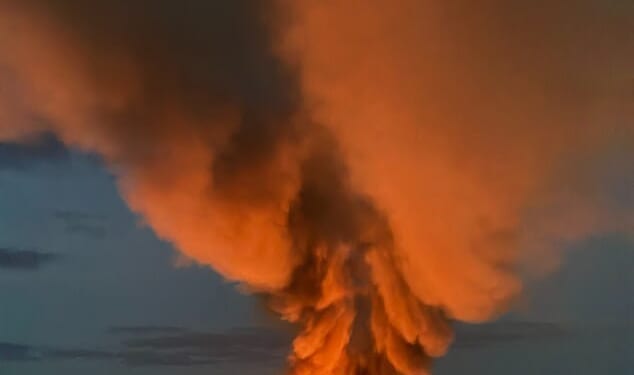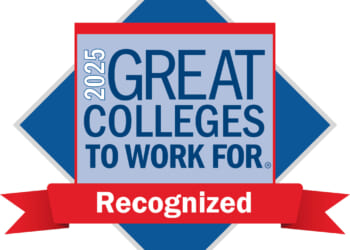Fatima Yunusa turns the handle of the tap in her front yard. The pipe gurgles and then spits cool, clean water into a plastic bucket beneath the tap, a moment at once ordinary and extraordinary.
For most of her life, Ms. Yunusa walked long distances to fetch water from a stream shared with cattle, or bought it from vendors who carried their wares in smelly jerry cans. “That was all we had,” she recalls. “I was always scared for my children.”
Then, three years ago, a nongovernmental organization called Mercy Corps showed up and drilled a borehole that pumped clean water to the tap in Ms. Yunusa’s yard. The organization was in the midst of doing the same thing in three northern Nigerian states when, this January, its funder suddenly turned off the tap.
Why We Wrote This
The closure of USAID left thousands of urgent humanitarian projects around the world half finished. Enter Project Resource Optimization, a matchmaking service to help them find new benefactors.
Hours after he took office, President Donald Trump signed an executive order freezing all US foreign assistance. In an instant, more than 20,000 American government-funded aid projects – including this one – came to a screeching halt.
“It was a terrible moment – communities where we work began calling, asking if the … program would continue,” says Harun Kobia, infrastructure advisor for the Mercy Corps project. “Everything froze … but we had no choice. We had to comply.”
The aid matchmaker
On the other side of the world, in California, Caitlin Tulloch also watched the unraveling of USAID with despair. (The agency formally closed July 1.)
Throughout her career as an economist, she had been obsessed with one question: How much impact can a single dollar make? That focus shaped the two years she spent at USAID, evaluating which of the agency’s programs delivered the most bang for American taxpayers’ buck.
In the aftermath of President Trump’s executive order, as Ms. Tulloch was reevaluating her own career, she got calls from two philanthropic foundations she’d brushed arms with in her work. They had a question: Which formerly USAID-funded projects needed their support most urgently?
Soon, an idea was born: an aid matchmaking service. Ms. Tulloch and a group of her former colleagues would crunch the numbers to find USAID’s most effective projects. Prospective donors – from foundations down to individuals – could browse that list, and if they found something they liked, they could pick up the tab.
Project Resource Optimization was born.
‘Urgent and vetted’
The team at Project Resource Optimization (PRO) began with a spreadsheet of over 22,000 programs around the world that USAID had been supporting. Then they asked: Which ones will save the most lives if we can keep them going?
Combing through the data, PRO identified several dozen projects doing unglamorous but highly effective work in the world’s poorest countries, from treating malnutrition to making cash transfers to people in crisis zones to distributing insecticide-treated nets to prevent malaria.
One of the projects that made the list was the Small-Town WASH Activity, a project by Mercy Corps and WaterAid to bring clean water and better sanitation to communities in northern Nigeria.
The project ticked all of PRO’s boxes. Water-borne bacteria contribute to the deaths of some 70,000 Nigerian children under age 5 every year, so the need was urgent. And the solution to that problem – drilling boreholes, and installing and maintaining taps and toilets – was cost effective. PRO calculated that the project cost just $3.35 per year for each person it helped.
“We’ve seen a significant improvement in the community’s quality of life” when they are hooked up to clean water supplies, Mr. Kobia says.
An entry for the project appeared on PRO’s list of “urgent and vetted” aid projects, requesting $129,000 for the maintenance of toilets it had set up in the communities where it created clean water sources.
Soon after, Fix The News and three other anonymous donors collectively picked up the tab.
Mercy Corps’ staff was thrilled. “It brought back hope,” says Mr. Kobia.
Elsewhere in Nigeria, other projects were also connecting with new donors. In total, PRO has helped pair five initiatives in Nigeria – focused on areas ranging from public health to food security – with $6.7 million in private funding.
Globally PRO has helped secure about $26 million for 24 projects on its list.
“Many of these donors weren’t typical players in global health,” says Ms. Tulloch. Instead, they were individuals and foundations who had little experience in international development, but “were horrified by what was happening and wanted to help.” PRO’s role was to provide trusted, expert advice. “We gave them a roadmap,” she says.
A lifeboat
With more than 22,000 USAID projects losing funding at once, Ms. Tulloch knows PRO’s effort is, in many ways, just a drop in the ocean.
If USAID was a sinking ship, PRO is “not trying to build a new ship,” Ms. Tulloch explains. “But we are the lifeboat, and we’re trying to kind of pull people out of the water – get as many projects to survive until … whatever [the] next thing is that comes along.”
For Mercy Corps, the PRO-facilitated private funding will enable the completion of water projects in three northern Nigerian states, Borno, Adamawa, and Yobe. In total, those investments will serve about 90,000 people, Mr. Kobia estimates. A second phase of the project that USAID previously bankrolled aims to reach another 60,000 people in the country’s southeast. To date, however, it has not found a new funder.
In Gangarasso-Sangassumi, another Nigerian village that has already received water infrastructure through the project, Umar Suleiman sits at the edge of the borehole site, calmly watching clusters of women and children arrive with yellow jerrycans. His job is to monitor the flow, making sure the taps aren’t damaged and that everyone takes their turn.
“We are deeply grateful to the American people and USAID,” Mr. Suleiman says. “This water has made our lives easier. We pray that other communities get to experience this.”
Now, thanks to PRO, they will. For Ms. Tulloch, keeping projects like this one alive is a way to show that “we didn’t sit by and allow this wasteful, cruel situation to unfold unchallenged.”
Even though the Trump administration formally dissolved USAID on July 1, Ms. Tulloch is forging ahead. PRO will continue its work, she says, “making sure the world’s most vulnerable still benefit from the commitments the U.S. made.”













